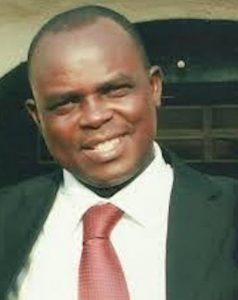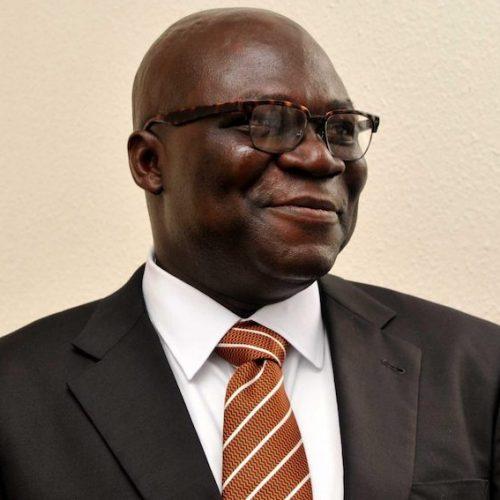By Bolanle Bolawole
turnpot@gmail.com 0705 263 1058
When I drew attention to the need for the Yoruba self-determination movement to devote some thought to the national question, as Marxists call it, many Yoruba Nation devotees angrily responded to me. Interestingly, today, the arrow-head of the Yoruba self-determination struggle himself, Prof. Banji Akintoye, has chosen to discuss the other volatile issue that the Yoruba Nation must begin to address – religion. There is no running away from the hydra-headed problems of religion and the national question, no matter how monolithic or heterogenous a nation or people may seem. It is wise to proactively address them, as Akintoye attempts to do here. Hear him!
“This message is for millions of Yoruba people at home and in the Diaspora who are involved in the struggle for a sovereign and separate Yoruba nation, to all Yoruba people at home and in all countries of the world. We came to the decision to write this letter because of some disturbing information reaching us about growing fears about religion among some of our Yoruba people. It is very surprising that fear about religion is showing up among some of our Yoruba people in these final stages of our Yoruba nation’s struggle for self-determination. It is immeasurably surprising because the whole world knows the Yoruba people as the most religiously tolerant and accommodating people in the world.
Every known scholar studying African society in the world today says that about the Yoruba. Here are a few of such scholars. Two highly-respected scholars who recently did research on Nigeria for the Government of the United States of America, Gerald McLoughlin and Clarence Bouchat, wrote in their report that the Yoruba are a model of religious coexistence in the world, and that “Muslim, Christian and animist Yoruba dwell peacefully, not only in the same cities, but in the same households”.
Another scholar, Prof. J. D. Y. Peel, of London University, who spent most of his academic life studying the Yoruba nation, wrote a lot about the Yoruba nation. In 2015, just before he died, he published a special research article in which he wrote that the Yoruba are the most religiously tolerant people in the world, and that they are very proud – and deservedly proud – of it. Then he gave the world the following memorable statement, “The tree which has yielded the poisonous fruit that we see in Boko Haram can never grow in Yoruba soil” – meaning that the religious extremism, intolerance and endemic religious violence in Northern Nigeria can never spread to Yoruba land.
But Prof. Peel went further than that. He gave the Yoruba people a serious advice: The Yoruba, he said, must see their culture of religious tolerance and harmony for what it is – namely, a high-quality cultural achievement, an achievement in which the Yoruba surpass all other nations, an achievement with deep roots in the Yoruba’s most ancient culture, a great gift to humanity, a wonderful possession that the Yoruba must never let anybody or anything take away from them. These are the things that the world knows about the Yoruba. That is what we are. Even former Nigerian president, Muhammadu Buhari, grand patron of the Fulani agenda of conquest of all non-Fulani peoples of Nigeria, could not resist acknowledging in a public speech in 2019 that, among all the peoples of Nigeria, the Yoruba are the best at separating religion from politics.
And there are non-Yoruba Nigerians who sincerely admire the Yoruba culture of religious tolerance and harmony. One of these, a prominent Igbo leader, Dr. Chukwuemeka Ezeife, former governor of Anambra State, stated in a newspaper interview in 2013 that the Yoruba are the “epitome of proper management of religion in society”, and added that all persons of good will should help to ensure that religious extremism never spreads to Yorubaland. In short then, when, by the grace of God, a sovereign Yoruba nation comes into existence soon, no person or group of persons (will be allowed to) generate in Yorubaland or in any part of the Yoruba nation any kind of religious extremism, insults or threats of violence against any other citizens because of their religion.

In the whole world, nations make laws to uphold and protect their culture. That is why laws differ from country to country; it is also why an act that is lawful under the laws of one country may be a serious crime under the laws of another country. For the Yoruba, the culture of religious tolerance, accommodation and harmony is a major part of our national culture. Therefore, the laws of our sovereign country will protect the right of every person to hold, practice and promote the religious faith of their choice; and the laws will provide serious penalties for religious discrimination, insults, threats or violence.
Religious harmony is not merely Yoruba culture. Religious harmony in Yoruba land, and the peace and stability that it will help to uphold, are great tools for achieving rapid and all-round progress and prosperity of our country. This rapid and all-round progress and prosperity for all Yoruba people is the cardinal reason why millions of Yoruba people have been fighting doggedly and tenaciously for a sovereign country of their own. It is the reason why we are determined to separate our Yoruba nation from the ever-deepening poverty and insecurity of Nigeria.
We are fighting for all our Yoruba people. If there are any of our beloved Yoruba people who do not yet clearly know or understand why we have been fighting, here is a brief statement of our reasons: Throughout our history, we Yoruba have never lived in the kind of horrific and ever-increasing poverty in which we are being compelled to live in Nigeria. Today, most of our Yoruba people are in danger of perishing. Most of our families cannot feed themselves and their children. Food prices are sky-rocketing daily, so much so that most of our people can no longer afford adequate food for themselves and their children…
There is an excessive high price of gasoline; the quality of education in public schools has deteriorated seriouly… Private schools are responding to the current situation by greatly raising their fees, thereby making education too expensive for most Yoruba parents. And therefore, now, for the first time since Yoruba people started Free Primary Education in the Western Region in 1954, out-of-school children are growing in numbers in Yoruba society.
Our Yoruba youths, most of them educated and many of them university graduates, roam the streets because there are no jobs. There are no jobs because the economy of Nigeria has essentially been crushed by decades of incompetent governments, by unspeakable and destructive public corruption, leading to the gradual crumbling of Nigeria’s infrastructure, the failure of countless businesses, and the flight of major foreign businesses from Nigeria to other countries.
For over two decades, countless thousands of educated Yoruba youths have been fleeing annually to other countries for jobs…Many of our bright and strong men and women who remain at home are forced to commit various strange crimes. Very many women are going into prostitution or street begging. Many men and women are going into internet worldwide crimes, even with the encouragement of their parents. Large numbers of youths are forming criminal and murderous cults. For rituals that are supposed to yield money, many are killing their friends, girl-friends, wives, and parents.
Even highly-placed citizens are engaging in crimes – some Obas are fraudulently selling community land to foreigners, high public officials are stealing the public money that is under their control, lower public officials are forcing citizens to pay bribes for the smallest official services, police officials are engaging in acts that amount essentially to robbery or street begging, etc.
Yoruba persons serving in the Nigerian public service are compelled to throw away their Yoruba ethos and to adopt Nigeria’s sordid immorality. Honesty, reliability and trust are vanishing in our land and our whole nation is going through the process of moral collapse. In many parts of our homeland, many persons who cannot see any possible path ahead are committing suicide. To add to these terrible conditions of our people, armed Fulani herdsmen and militias have been relentlessly attacking all parts of our Yoruba homeland since 2015.
Our farmers have been forced to abandon farming altogether, with the result that food security has seriously imperiled our land. Other people, the Igbo people of Eastern Nigeria especially, are coming in unrestrained numbers upon us with their own brand of unrestrained conduct and threats. The reason they are able to do all these is that we and they still belong in one Nigeria.
What all these devastating conditions sum up to is that the Yoruba nation is breaking up – yes, breaking up very fast. And we must stop the breaking up. We must revive and rebuild our economy. We must restore security and orderliness to our homeland. We must control immigration to our land. And the only way we will be able to accomplish these is to have our own country separate from Nigeria. In its own sovereign and separate country, the Yoruba can quickly achieve change and prosperity. To begin to do this seriously, we must have control of our country. We must have our separate sovereign Yoruba nation.
The task of liberating and rebuilding the Yoruba nation is a task for all Yoruba people. Our religions cannot obstruct it. Those who are now fighting for our nation’s liberation at home and in the Diaspora are a mixed bag from all religions – Muslim, Christian, Isese, and many others. The same will be true of the men and women whom we will have to push forward to give us the services of the government after we have secured our sovereign country.
And, absolutely, no religion will be able to interfere with the task of giving the Yoruba people the high quality of government that our nation deserves – and the high quality of development, progress and prosperity. We the Yoruba are fighting for the final destiny of our Yoruba nation now – and nothing can stop us!”
It could not have been better put!
- Former Editor of PUNCH newspapers, Chairman of its Editorial Board and Deputy Editor-in-Chief, BOLAWOLE was also Managing Director/ Editor-in-Chief of The Westerner newsmagazine. He writes the ON THE LORD’S DAY column in the Sunday Tribune and TREASURES column in the New Telegraph newspaper on Wednesdays. He is also a public affairs analyst on radio and television.




















